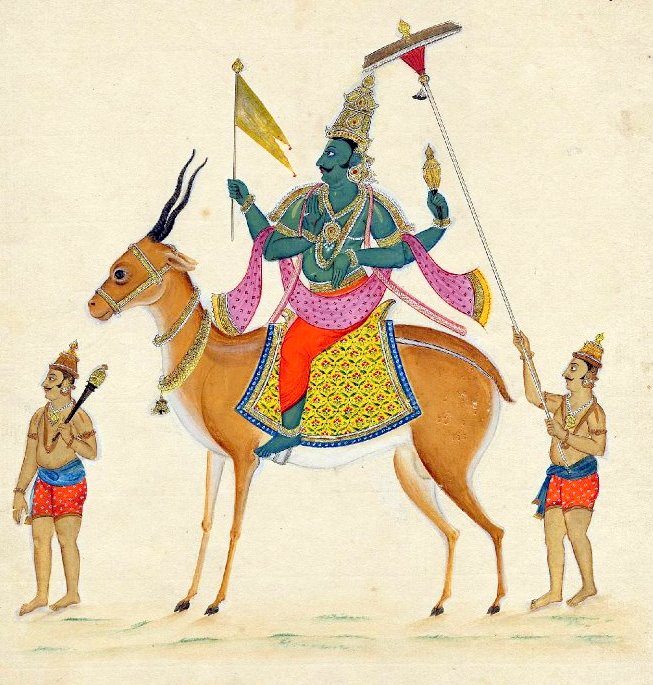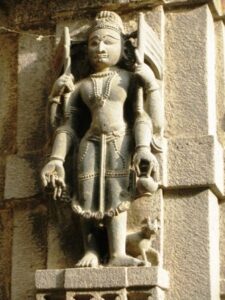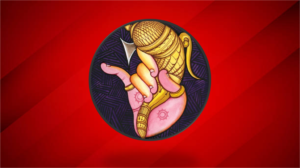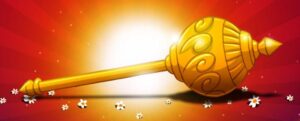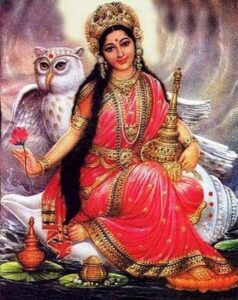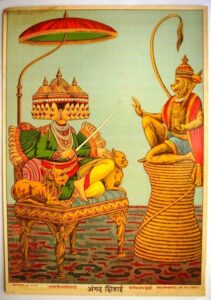Vayu is the Hindu god of the winds and the divine messenger of the gods. Vayu is known by many names – Vata, Anila, Pavan, Vyana, Tanuna, and Mukhyaprana. His abode is Vayu Loka or Satya Loka.
In the Vedic scriptures, Vayu is an important deity and is closely associated with Indra, the king of gods. He is mentioned to be born from the breath of Supreme Being Vishvapurusha and also the first one to drink Soma.
The Upanishads praise him as Prana or ‘life breath of the world’.
In the later Hindu scriptures, he is described as a Dikpala (one of the guardians of the direction), who looks over the north-west direction.
The Hindu epics describe him as the father of the god Hanuman (Ramayana)and Bhima (Mahabharata). Since Hanuman is the spiritual son of Vayu, he is called as Pavan Putra (Pavan’s son) or Vayu Putra (Vayu’s son).
His consort is Tvashta as per Rigveda, Svasti as per Devi Bhagvata Purana and Bharati as per Madhava sect.
The iconography of Vayu:
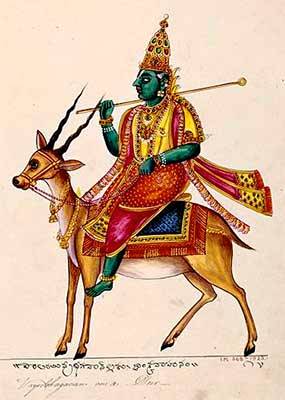
In the Vedic hymns, Vayu is ‘described as having “exceptional beauty” and moving noisily in his shining coach, driven by two or forty-nine or one thousand white and purple horses. A white banner is his main attribute’. Like the other atmospheric deities, he is a ‘fighter and destroyer’, ‘powerful and heroic’.
Vayu god is commonly seen on his mount gazelle or chariot drawn by horses.
As Mukhyapran Vayu, his weapon is Gada (mace) and as Dikpala Vayu, his weapon is Ankusa (goad).

